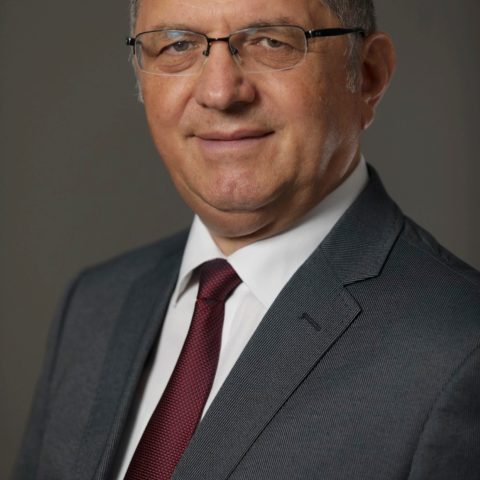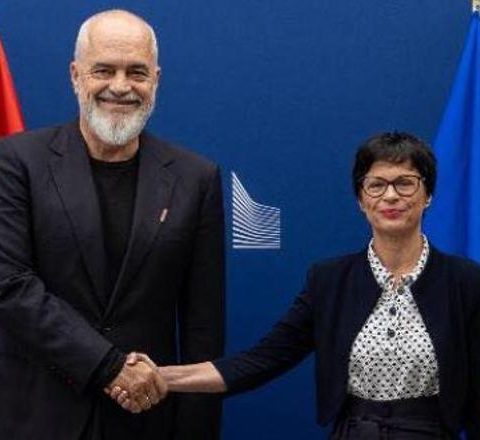Khazar Akhundov
Caliber.az
The demand for alternative transport routes connecting Asia with the Old World (Europe, Asia, Africa) has increased by many times amid the energy and food crises, exacerbated by geopolitical contradictions in Eastern Europe. In particular, the issue is the Middle Corridor passing through Azerbaijan, the development of logistics of which has been supported at the highest international level over the past two years. The international conference entitled “Along the Middle Corridor: Geopolitics, Security and Economy”, held at the ADA University in Baku recently, was also aimed at promoting the transport and logistics potential of the Middle Corridor, in which Azerbaijani President Ilham Aliyev took part.
The geopolitical crisis, which has been going on for nine months, caused by the war in Ukraine and the anti-Russian sanctions adopted by the US, the EU, and other countries of the Western bloc, has qualitatively changed the transit and logistics situation of Eurasia.
The number of applications from forwarders and logistics companies of Europe, Türkiye, the Central Asian countries, China, and even Japan, voicing the initiative to expand the potential of the Silk Road by increasing the cargo flow along a number of routes of the Middle Corridor has been greatly increased.
The situation around this route has become even tenser over the last two months.
According to a resolution of the Russian government, counter-sanctions, namely, a ban on international cargo transportation by cars through Russia, was introduced for carrier companies from the European Union, Ukraine, Great Britain, and Northern Ireland, Norway in the first ten days of October.
The ban will be in effect until December 31, 2022 (with the prospect of its further extension) and will affect almost the entire freight transport by road from the Central Asian countries in the western direction.
Therefore, the existing railway and road routes are shifting from north to south to the transit corridors passing through Azerbaijan.
The prospects of the transport vectors of the Middle Corridor and the role of Baku in the creation of the corresponding infrastructure were once again discussed at the international conference entitled “Along the Middle Corridor: Geopolitics, Security and Economy” held in Baku on November 25.
Well-known researchers and experts from leading analytical centers of the US, Belgium, Bulgaria, UK, France, Israel, Sweden, Italy, Georgia, Canada, Egypt, Pakistan, Poland, Romania, Russia and Türkiye took part in the forum along with members of the country’s government, heads of state agencies and state companies. During the event, security aspects of the Middle Corridor, its role in the development of the economic potential of the region were discussed. The views on the significance of the Zangazur Corridor in the context of the prospects for a multiple expansion of cargo flow along the East-West vector were exchanged.
“Advantage of our geographical location is just we are situated between Europe and Asia, actually, in the middle between the two continents and this allows us to play an important role in connectivity issues. Five years ago we inaugurated together with our partners Baku-Tbilisi-Kars railroad project and now when we see the growing volume of cargo crossing our country we started to invest in the expansion of the Georgian segment of Baku-Tbilisi-Kars,” Azerbaijani President Ilham Aliyev said at the conference.
During a recent working visit to Georgia, the president also spoke about the speedy implementation of plans to expand the capacity of the railway infrastructure of the BTK corridor. During that period, the plans were announced to increase the throughput capacity of the Baku International Sea Trade Port from 15 to 25 million tons per year, as well as to increase the capacity of the Baku-Tbilisi-Kars railway to five million tons.
In this regard, it is planned that Azerbaijan will direct additional investments in the development of the railway corridor in 2022-2023. Moreover, all these projects will be consistently and without delay implemented soon, for which the necessary budgetary funds will be provided.
It is planned to implement these projects in close partnership with Georgia and Türkiye, in particular, joint efforts will be aimed at increasing the capacity on the narrow sections of this railway. The work is expected to be accelerated in Georgia to complete the construction of the Marabda-Turkish border railway section, as well as the construction pace of logistics terminals in Georgian Akhalkalaki town and Turkish Kars city thanks to Azerbaijan’s investment cooperation soon. These transport hubs will further increase BTK’s cargo potential.
The above-mentioned projects have acquired special regional significance. The two-fold increase in cargo transportation observed this year between the key ports of the eastern and western shores of the Caspian Sea testifies to this.
Kazakhstan, Azerbaijan, Georgia and Türkiye have recently signed a roadmap on the synchronous elimination of bottlenecks and the development of the Middle Corridor for 2022-2027 to expand the capabilities of the Trans-Caspian Corridor.
This decision was made following the second trilateral meeting of the foreign ministers and transport ministers in Aktau on November 25. Four countries involved in the Trans-Caspian International Transport Route (TITR) plan to increase the throughput capacity of this route from 6 to 10 million tons by 2025.
Baku through active support of Ankara and other partners in the South Caucasus and Central Asia, taking into account the great interest of cargo carriers in China and Europe, seeks to diversify the possibilities of the Middle Corridor through the creation of another branch – the Zangazur Corridor (the corridor, which connect mainland Azerbaijan to its Nakhchivan exclave via Armenia).
“I don’t think that Armenia will be able to block this project. As far as Iran is concerned, I also don’t think that will be the case, because Iran itself should be interested in regional connectivity projects. Because these projects are not against anyone,” President Aliyev said, stressing that new transport initiatives will serve the benefit of all regional countries.
“The opening of the Zangazur Corridor, which could have a great impact on the expansion potential of the Middle Corridor, will contribute to major changes in the transport map of the region,” Azerbaijani Deputy Minister of Digital Development and Transport Rahman Hummatov said.
The minister noted that the Zangazur corridor is the shortest transit route capable of diversifying transport ties among China, Central Asian countries and Europe.
That is why, even despite the destructive position of Armenia, which in every possible way delays the process of developing a route through its territory and does not carry out any practical work in this sphere, Azerbaijan is taking concrete steps.
In particular, a capital-intensive programme for the construction of highways and railway infrastructure has been implemented in the East Zangazur economic region of the country for the second year.
To date, the construction of the 124-kilometre Horadiz–Aghband-state border with Armenia highway has been completed by 60 per cent and its commissioning is scheduled for late 2023, while the laying of the Horadiz – Aghband railway (110 km) has been completed by 40 per cent and approximately this section will be built in 2024.
Azerbaijan’s key efforts after the victory in the second Karabakh war and the liberation of the Karabakh region from occupation were aimed at creating transnational transport corridors in the South Caucasus and turning the region into a territory of peace and cooperation. This was appreciated at the highest international level and the conference in Baku testified to this.









